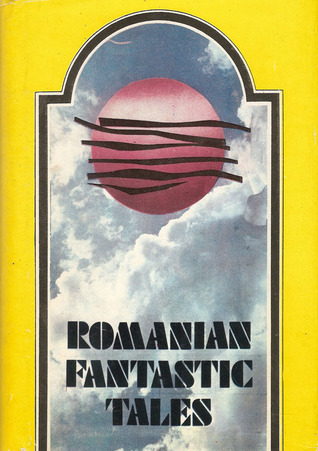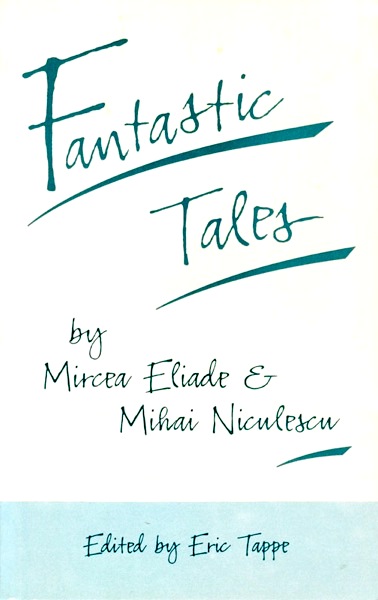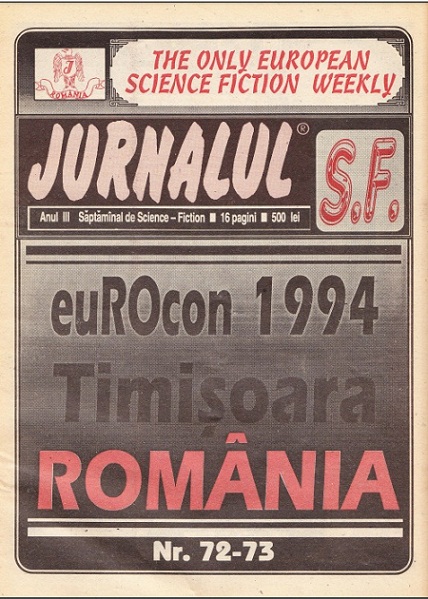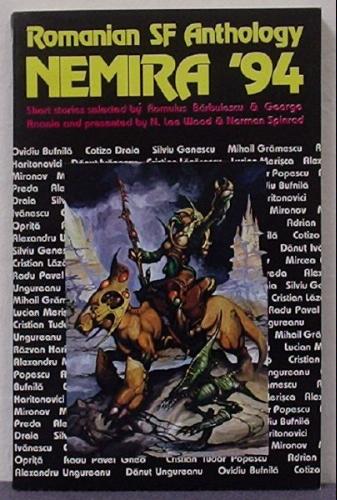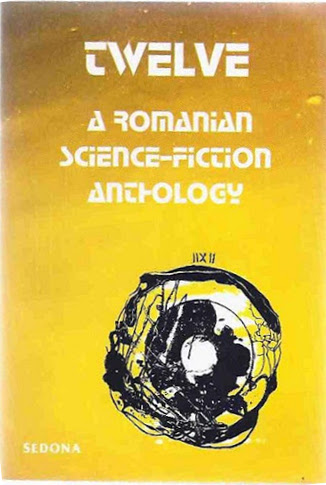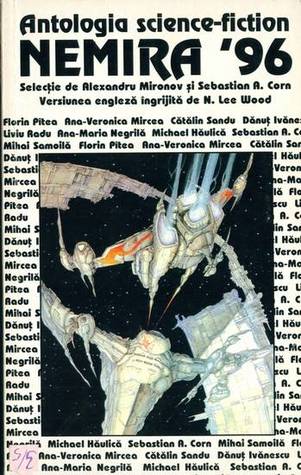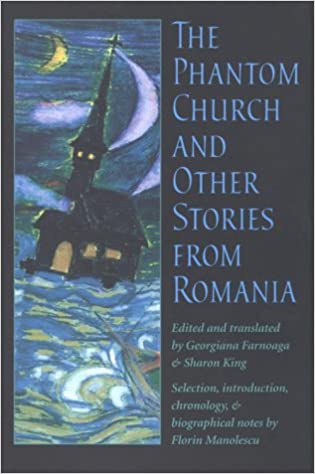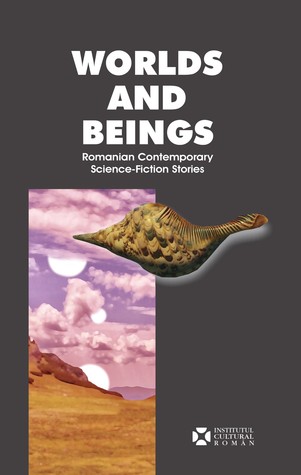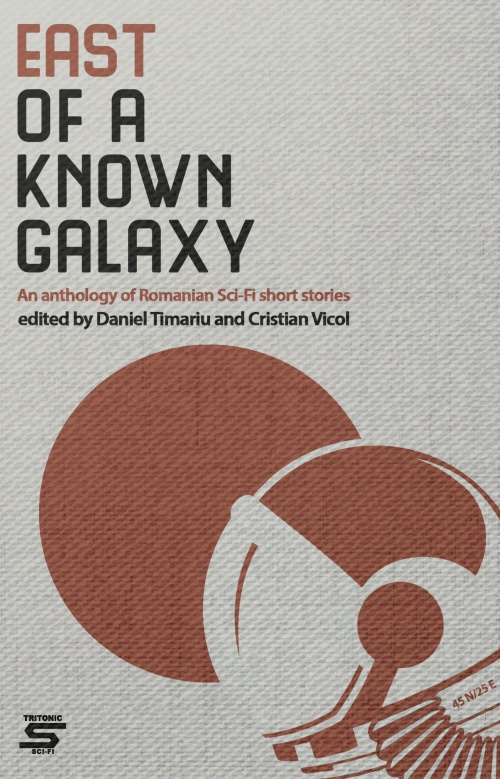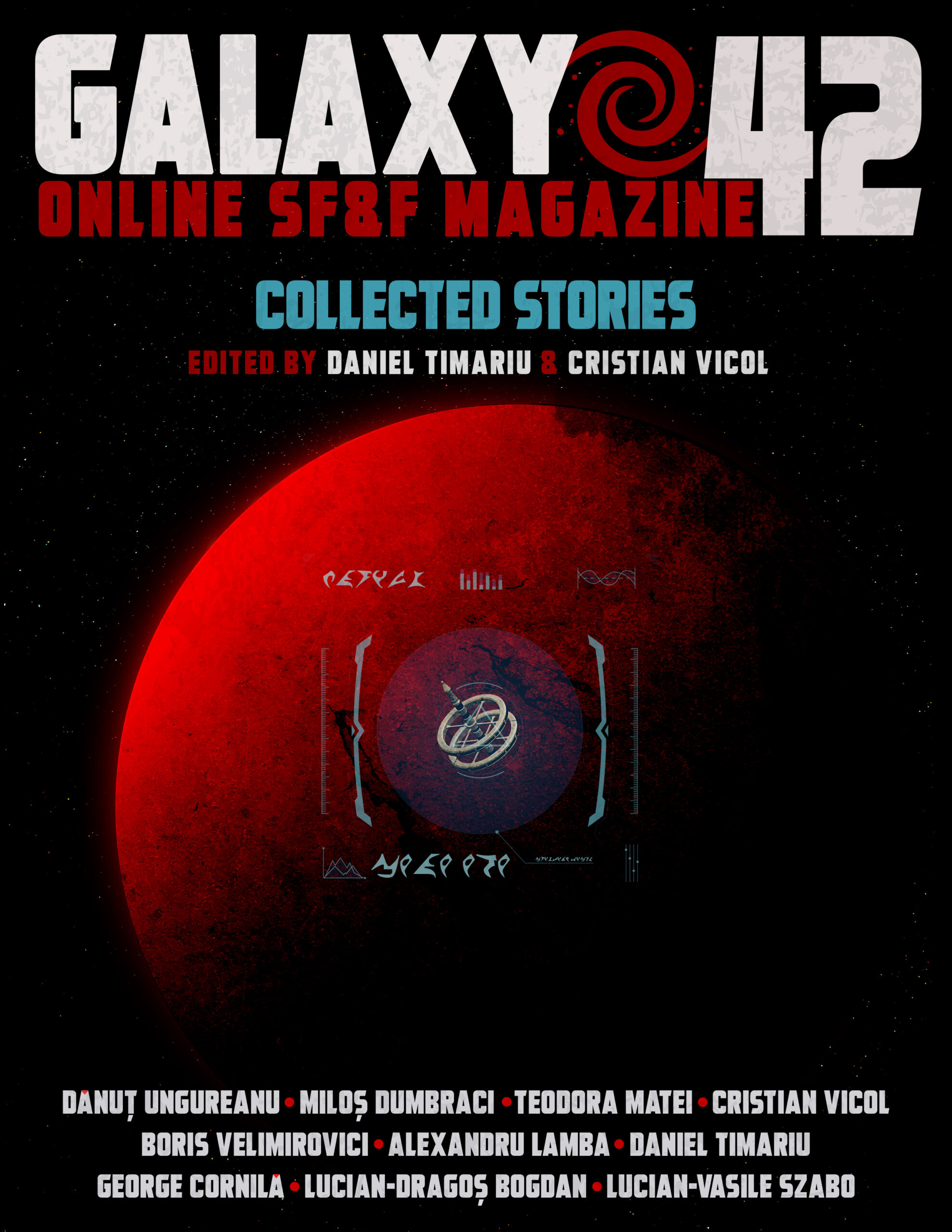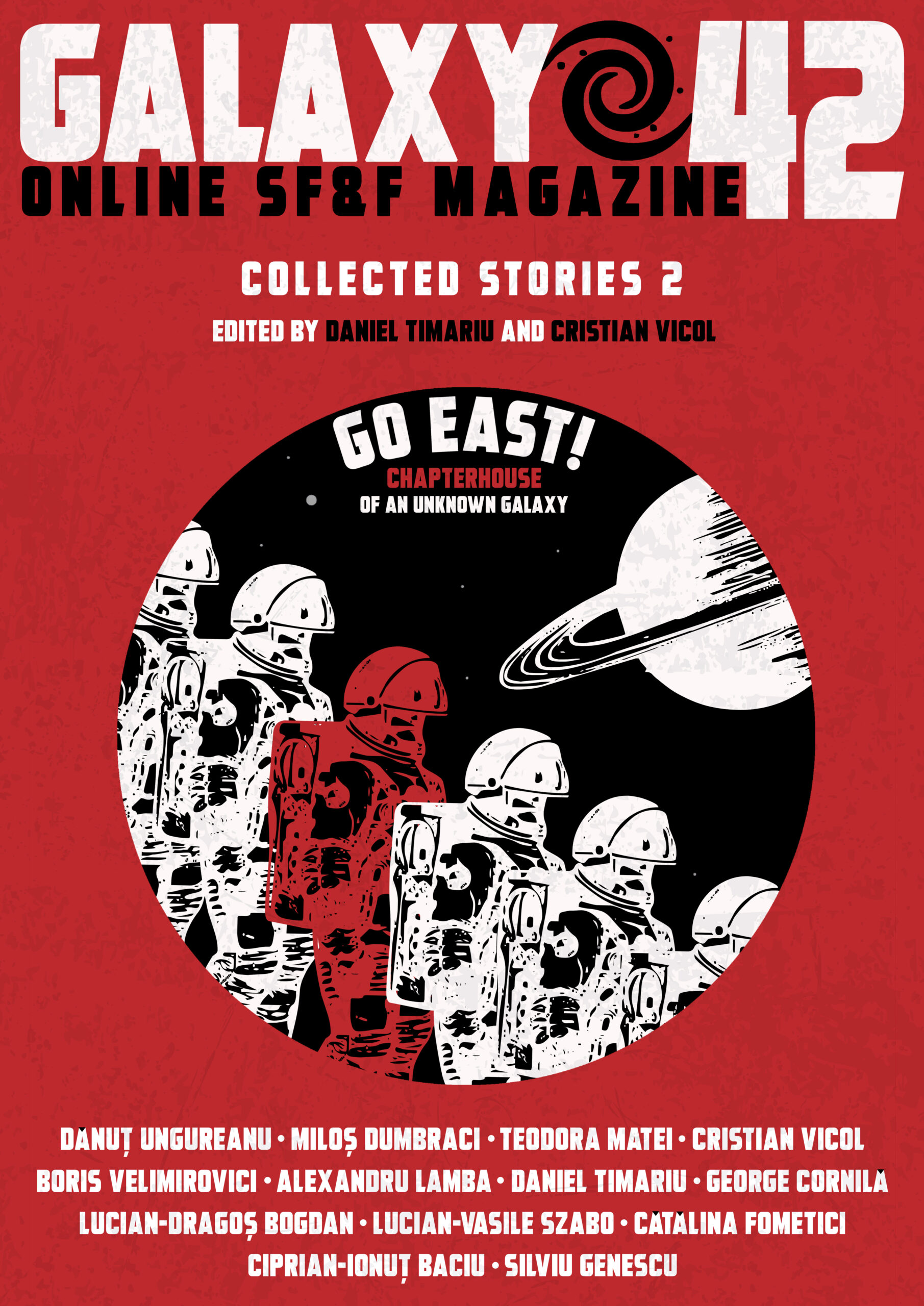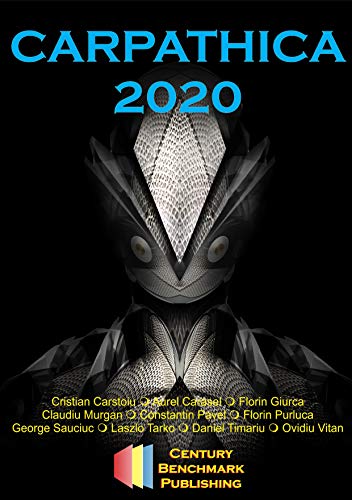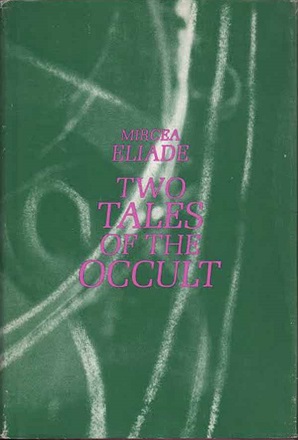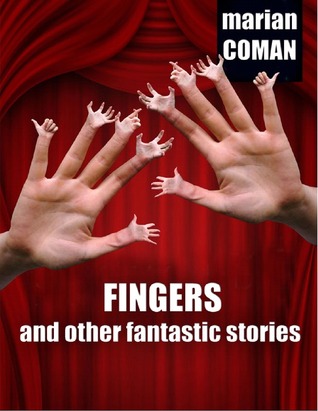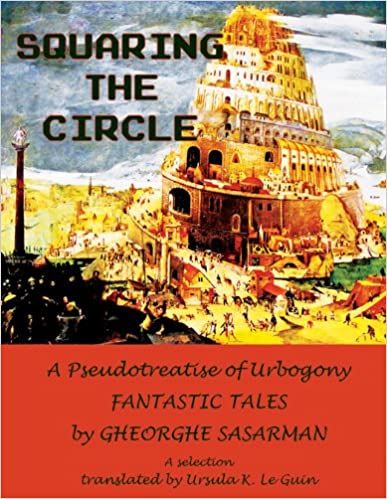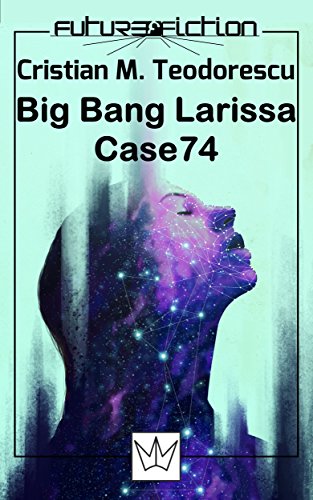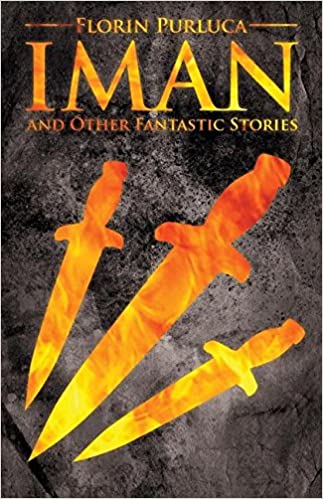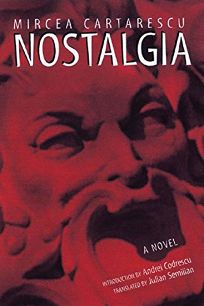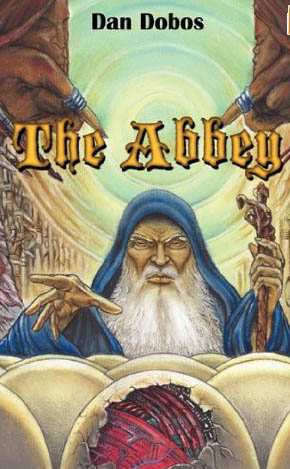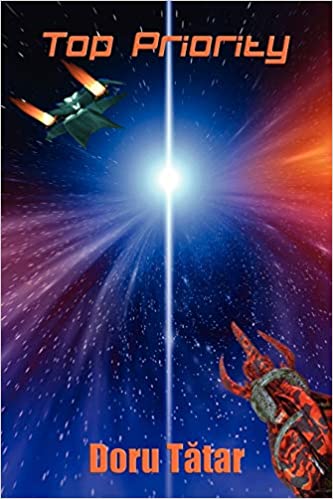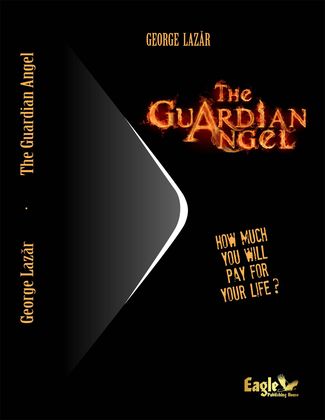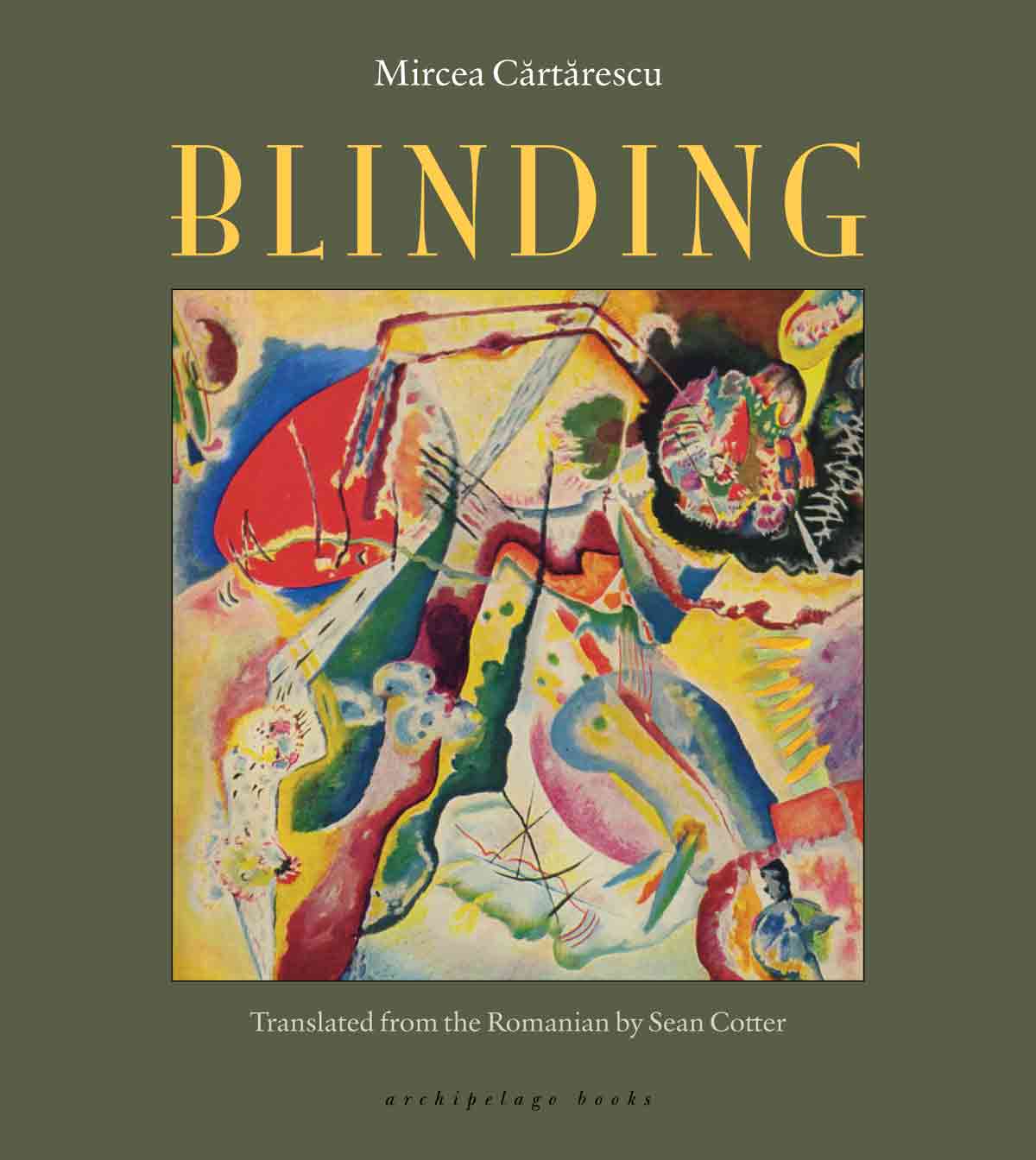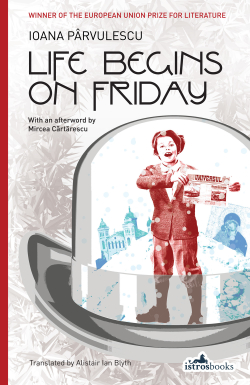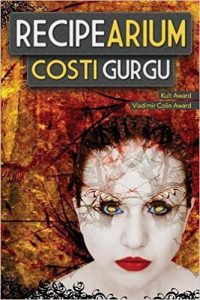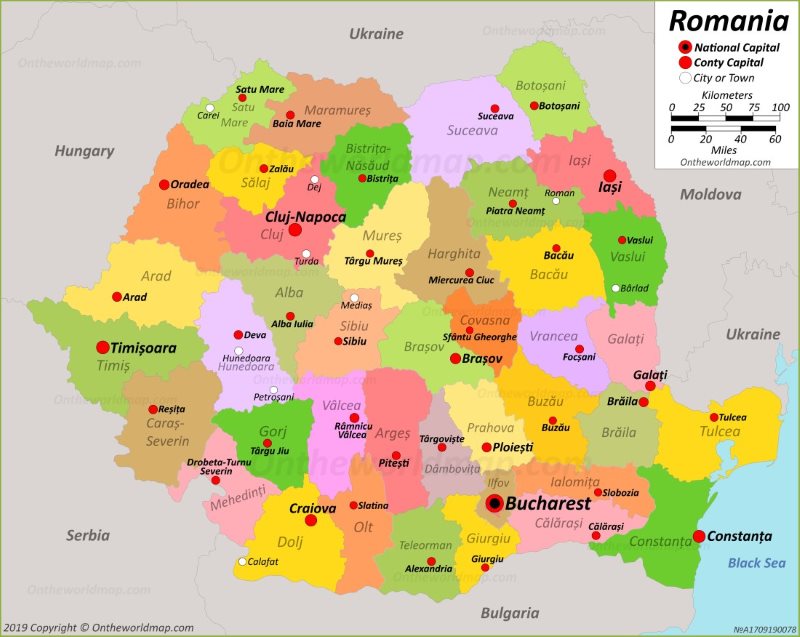
OVERVIEW
Anglophone readers might think that Romanian speculative fiction in English is rare, but they’re wrong. In fact, if you start looking for it, you’ll find it everywhere. Granted a number of the books, collections, and anthologies are either out of print or difficult to get in some Anglophone countries, but the more that we readers ask for Romanian SFT, the more we’ll get it.
Romanian speculative fiction developed independently of the Western version, trapped as the country was during the twentieth century behind the Iron Curtain and under the totalitarian regime of Nicolae Ceaușescu. Despite harsh censorship, Romanian authors crafted beautiful, intriguing, fantastic, surreal, and horrifying tales about everything from scientists discovering the key eternal life to AI taking on Shakespearean personae. Since 1990, Romania has had more contact with the West and participated in many Eurocons and other international sf groups. Thanks to the internet, many works of Romanian SFT are available for free online, and authors and translators in Romania can communicate much more easily with Anglophone readers, translators, editors, and publishers.
This Romanian SFT Month is my attempt to introduce readers to a particularly unique and enjoyable speculative fiction that sadly flies under the radar in the Anglosphere. The issue of translation quality comes up at times, and while some of these texts would have benefited from better editing, I encourage readers to look beyond the inconsistent English to the themes and styles that make Romanian speculative fiction so robust and energetic.
I’ll conclude with a particularly valuable quote about Romanian speculative fiction by acclaimed American science fiction author Norman Spinrad, who edited and wrote the afterword to the Romanian SFT anthology, Nemira ’94: “You can open this book more or less at random, read just a few pages, and realize that Romanian science fiction is different…This work is radically different on every level, from the surreal storylines, to the intense magical realism of the imagery, to the dense superheated energy of the prose itself. Even in English translation, you can read a paragraph of just about any story in this book, and know that you are reading Romanian science fiction, and not something else…Unashamedly surrealistic, cynically idealistic and idealistically cynical, seething with humor down to the very rhythms of the prose, bitter, hopeful, blackly courageous, the stories in this book speak for Romania in its own true voice and not a second-hand version of somewhere else, and by so doing, speak to and for us all.”
Essays on Romanian Speculative Fiction
“Milestones in Postwar Romanian Science Fiction” by Cornel Robu (Foundation, 1990).
“Romanian “Science Fantasy” in the Cold War Era” by Elaine Kleiner (Science Fiction Studies, 1992).
“Science Fiction in Romania up to 1990” by Laurentiu Nistorescu et al (Concatenation, 2009).
“How Modern Is the Modern Romanian Fantastic?” by Ioana Zirra (Plural Magazine, 2009).
“Science Fiction in Romania since the 1990 revolution” by L. Nistorescu et al (Concatenation, 2011).
“Aliens in Romania” by Marian Coman (Grasping For the Wind, 2011).
“On Romanian speculative fiction” by Mihai Adascalitei (Locus, 2012).
“Short (Hi)Story of Romanian Speculative Fiction (Part 1)” by Cătălin Badea-Gheracostea (International Speculative Fiction, 2012).
“Short (Hi)Story of Romanian Speculative Fiction, (Part 2)” by Cătălin Badea-Gheracostea (International Speculative Fiction, 2012).
“Short (Hi)Story of Romanian Speculative Fiction (Part 3)” by Cătălin Badea-Gheracostea (International Speculative Fiction, 2012).
“The Fascinating Realm of Romanian Science Fiction” by George Slusser (fantastica.ro, 2013).
“No CNN at the Four Gates of Recent Romanian Imaginary” by Cătălin Badea-Gheracostea (SFRA Review, 2014). [pages 25-31]
“Worlds and Beings” (the Romanian SF Anthology in English Translation) Book Launch (Europa SF, 2015).
“Romania” by Cornel Robu (The Encyclopedia of Science Fiction, 2018).
“A Note on Romanian Science Fiction Literature from Past to Present” by Mariano Martín Rodríguez (Sci Phi Journal, 2019).
Useful Sites
SRSFF (Societatea Română de Science Fiction și Fantasy)
Galaxia 42 (Romanian SFF site)
ANTHOLOGIES
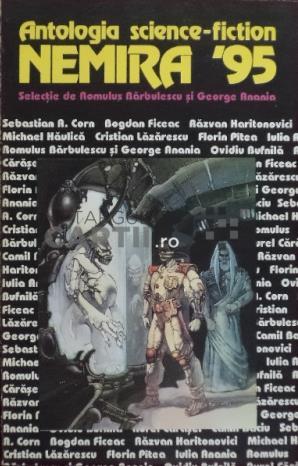
1995
COLLECTIONS
NOVELS
STAND-ALONE SHORT STORIES
Ardelean, Flavius. “Down, in Their World,” translated by James D. Jenkins (The Valancourt Book of World Horror Stories, Vol.1, 2020).
Bufnila, Ovidiu. “Ubiquitous Man,” translated by Ioana Bostan (Bohème Magazine, 2003).
A meditation on humanity in all its forms and faults.
—-. “Dog-Eat-Dog Universe,” translated by Ioana Bostan (The Writers Voice, ?).
—-. “The Arms of the Gods,” translated by Cătălin Badea-Gheracostea (Sci Phi Journal, ?).
A cyberpunk prose poem/fable about a prince who reasserts his power by reprogramming a kind of computer network.
Colin, Vladimir. “The Contact,” translated by the author (Other Worlds, Other Seas, 1970).
—-. “Beyond,” translated by ? (Edge, Autumn/Winter 1973).
Coman, Marian. “The Small White,” translated by Sebastian Simon (Apex Magazine, 2019).
A young girl confined to her home paints large butterflies on her bedroom walls and the walls of her apartment building via her dreams.
Gurgu, Costi. “The Glass Plague,” translated by the author (Creatures of Glass and Light, 2007).
—-. “Angels and Moths,” translated by ? (Ages of Wonder, 2009).
—-. “Children of God,” translated by ? (Street Magick: Tales of Urban Fantasy, 2016).
Haulica, Michael. “LAPINS,” translated by Adriana Moșoiu (SF Crowsnest, 2004 / World SF Blog, 2011).
A man eats real food along with the stimulants attached to it and ultimately dies; a future cure for the sickness involves dreamless sleep.
—-. “Lipstick,” translated by Adriana Moșoiu (Anotherealm, 2003 / Magaera, 2003 / Magaera Anthology Vol.1, 2005/ SFT, 2020 [edited by Rachel Cordasco]).
A special kind of lipstick that influences language and thought is peddled around the galaxy.
—-. “Madia Mangalena,” translated by Mihai Samoila (Aphelion, 2000).
Hobana, Ion. “A Kind of Space,” translated by Maxim Jakubowksi and “Sonia Florens” (Dolorès Jakubowski) (Twenty Houses of the Zodiac, 1979).
—-. “Night Broadcast,” translated by Dan Dutescu (The Penguin World Omnibus of Science Fiction, 1986).
—-. “The Best of Worlds,” translated by ? (Edge, Autumn/Winter 1973).
An astronaut loses consciousness in flight and lands on what he believes is a fabulous new planet, only to discover that it’s actually Earth.
Otoiu, Adrian. “Tip of the Day, or, Shakespeare and Computers,” translated by the author (Words Without Borders, 2004).
A computer program with a Shakespeare persona tries to influence and control its user; along the way, it slowly transforms into an image of a sultry woman.
Purluca, Florin. “Dust,” translated by Klaudia Stan (The Singularity #3, 2016).
A fine dust starts falling on the Earth and doesn’t stop until it has choked off nearly all living things. In this apocalyptic wasteland, one boy struggles for survival.
—-. “The Ark,” translated by the author (Aphelion, 2016).
—-. “Ouroboros,” translated by the author (Aphelion, 2017).
—-. “The Last Journey,” translated by the author (SFinTranslation.com, 2019).
—-. “The Freaks,” translated by the author (The Worlds of SF, F, and Horror, Volume IV, 2019).
—-. “Following Alice,” translated by the author (Aurora Wolf, 2019).
—-. “An Almost Perfect Exchange,” translated by Anita Richie (Unfit Magazine, 2020).
Radu, Liviu. “Digits are Cold, Numbers are Warm,” translated by Loredana Fratila-Cristescu (International Speculative Fiction, 2012).
“A Lovecraft-inspired horror story set in Victorian England, this is the story of an old woman’s confession of the terrible sacrifices she and her now-dead husband had to make in order to prevent a horrifying transdimensional incursion.”
Rogoz, Adrian. “The Altar of the Random Gods,” translated by Matthew J. O’Connell (View from Another Shore, 1974).
A bizarre malfunction occurs on a superfast, computer-controlled express car.
Surugiu, Liviu. “The Meeting,” translated by Raluca Basala and Teodora Vidrean (Cirsova: Magazine of Thrilling Adventure and Daring Suspense, #4, 2020).
“A deep and slow-paced psychological drama with a dark turn.”
—-. “The Choice,” translated by Andrada Coos and Raluca Balasa (Galaxy’s Edge, 2020).
A man wakes up on the Moon, unable to remember why he’s there, and he must find a way to stop his suit from losing oxygen as he thinks back on his life.
—-. “The Dinner,” translated by translated by J.S. Bangs, edited by Jason Sizemore (Unfit Magazine, 2020).
Teodorescu, Cristian Mihail. “The Death of Mr. Teodorescu,” translated by ? (International Speculative Fiction 0, 2012).
Truță, Marian. “Hunt Beneath the Moon,” translated by Monica Nicolau (International Speculative Fiction 1, 2012).
“A strange and surreal modern fairytale of a clash between our world and another world.”
Ungureanu, Danut. “Notes from a Dwarf Universe,” translated by ? (Anthology of European Speculative Fiction, 2013).
What if somebody invented a shrinking machine?

